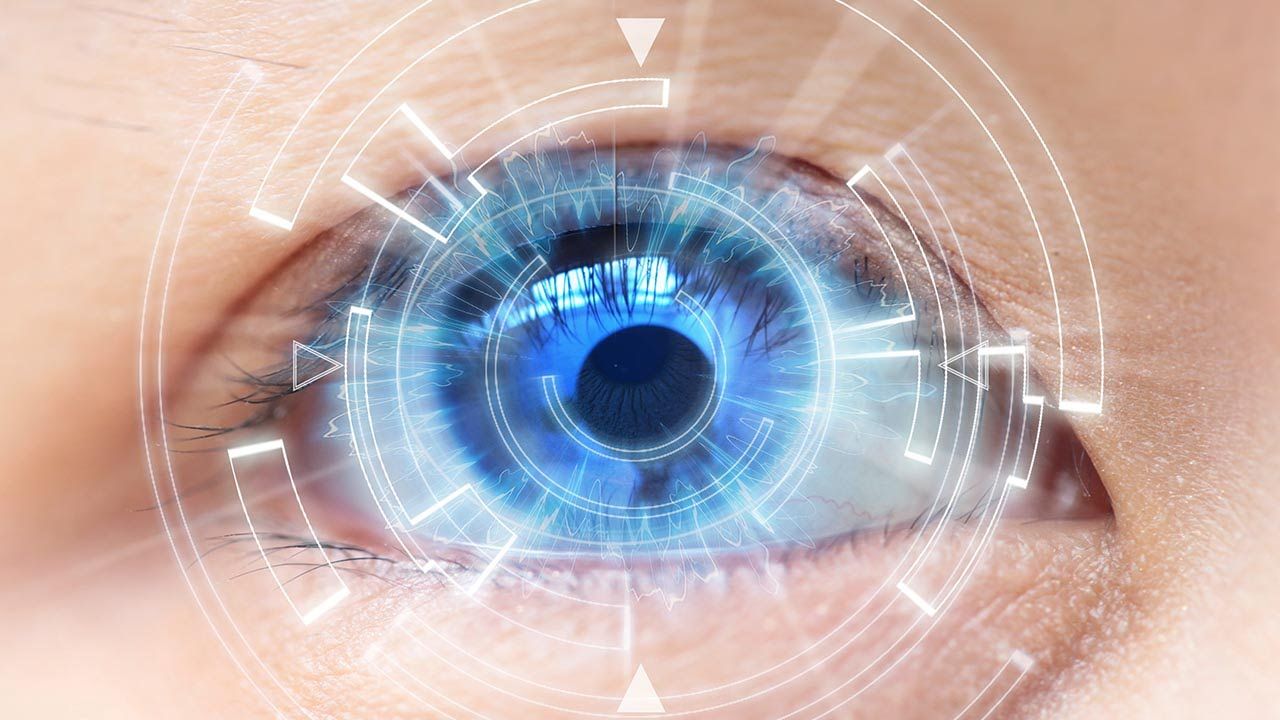10 Eye Care Essentials You Should Invest
It is very important to take care of your eyes especially now that so many of us use computers tablets and phones. Investing in the right eye care products and habits is critical to keeping your eyes healthy and your vision clear. Not only do you want to be able to see well now but you also want to keep your eyes healthy in the future.
This guide will show you ten great ways to care for your eyes. These essentials include everything from protective eyewear to help shield your eyes from harmful light to special eye drops that keep your eyes moist and comfortable. We’ll also talk about eye health supplements that nourish your eyes and blue light-filtering glasses that can reduce screen strain.
Here at trusted10.io we know how important it is for you to have good eyesight. So our experts are here to help you find the eye-healthy goods and ways to use them. This blog will teach you how to protect and improve your eyesight with simple steps that can make a big difference. So let’s get started and discover how to care for your eyes better!
#1: Protective Eyewear
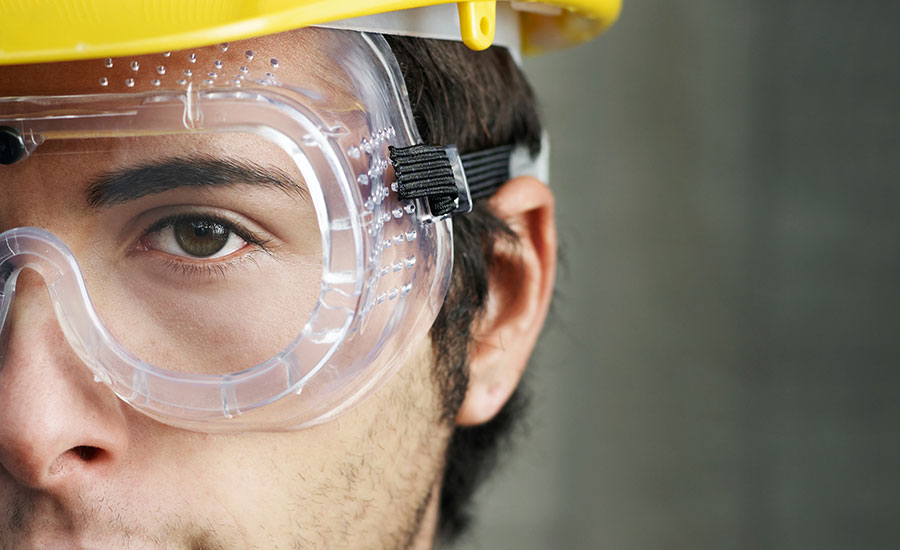
Your eyes are very delicate and need special protection to stay safe. Not wearing safety glasses can lead to major problems like getting hurt or losing your sight. Let's talk about why wearing protective glasses is so important the different kinds you can choose from and some tips on picking the best ones for you.
The Risks of Not Wearing Protective Eyewear
If you don't wear protective eyewear you could face several dangers such as:
- Scratches and cuts: Tiny bits of dust or dirt can scratch or cut your eyes which can hurt and might cause infections.
- Blunt trauma: If something hits your eyes it can cause serious injuries that might hurt your vision.
- Chemical burns: Harsh chemicals can burn your eyes leading to terrible damage and possibly blindness.
Types of Protective Eyewear
There are a few types of protective eyewear you can wear to keep your eyes safe:
- Sunglasses: These will shield your eyes from the harmful UV rays of the sun. Make sure they block all UV rays and protect your eyes.
- Safety glasses: That's right these glasses shield your eyes from things like flying dust or pieces of metal. They should be tough enough to resist impacts.
- Sports goggles: These are needed to protect your eyes during sports. They should be firm and fit well to help prevent sports injuries.
Tips for Selecting the Right Protective Eyewear
Here are some tips to help you choose the proper protective eyewear:
- Fit and Comfort: Make sure the eyewear fits well and feels comfortable. It won't protect you well if it’s too tight or loose.
- Complete Coverage: For the best protection choose glasses that cover all around your eyes.
- Specific Hazards: Consider potential threats such as flying objects or chemicals and select protective glasses accordingly.
- Safety Standards: Check that the glasses meet safety standards which means they are tested to be safe and effective.
- Prescription Needs: If you wear prescription glasses you might need special protective glasses to help you see clearly.
Proper protective eyewear is crucial to keeping your eyes safe and healthy. Wearing the right type and ensuring they fit well can help protect your eyes from harm.
#2: Eye Drops
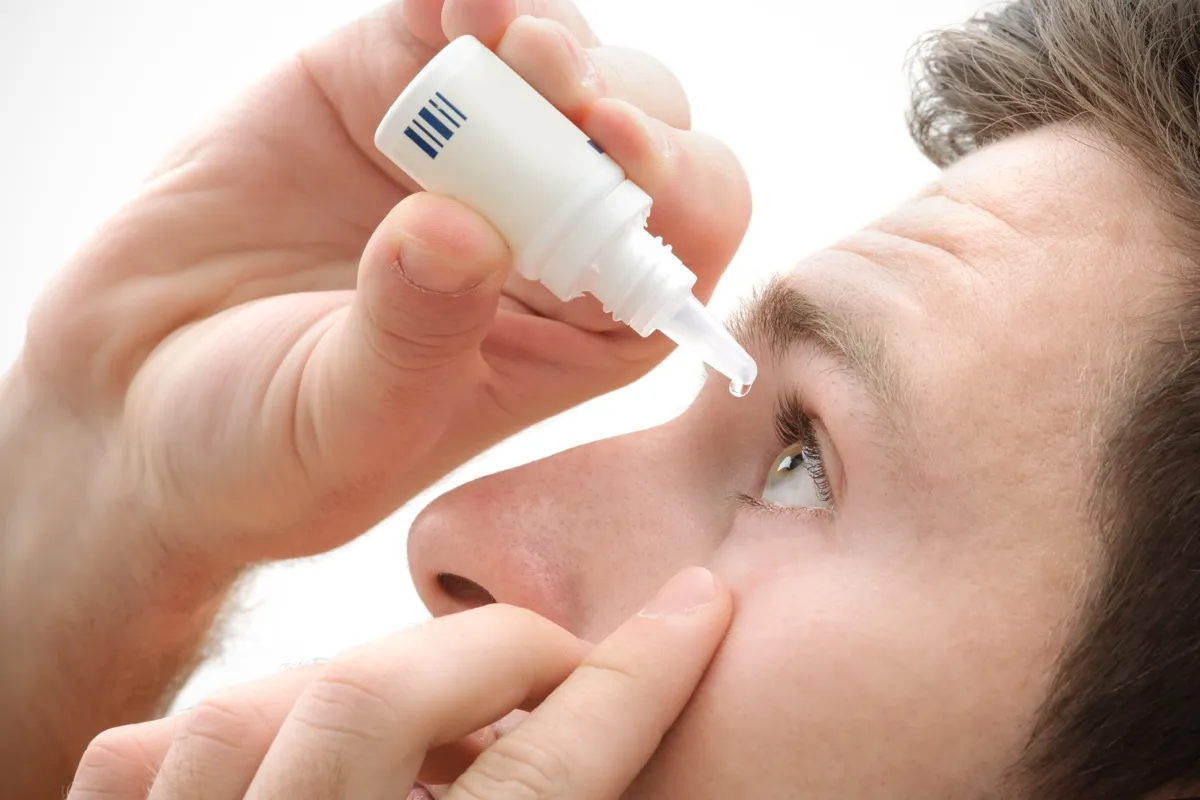
If your eyes often feel dry or look red eye drops can help make your day better. They're easy to use and have the potential to alleviate eye strain. Let’s talk about why eye drops are helpful what kinds you can find and some simple steps on how to use them right.
Benefits of Using Eye Drops
Eye drops can do a lot of good things for your eyes:
- Help with dry eyes: If your eyes feel scratchy or dry eye drops can make them feel wet and comfortable again.
- Make red eyes look better: These drops can remove the redness so your eyes look clear.
- Calm down allergies: If your eyes itch or water because of allergies some eye drops can make them feel much better.
- Keep eyes from getting infections: Some eye drops have a particular medicine that stops germs and keeps your eyes healthy.
Types of Eye Drops
Here are some options for eye drops:
- Artificial tears: These are prevalent and help add moisture to your eyes when they feel dry.
- Redness-reducing eye drops: These drops help make your eyes look less red.
- Allergy eye drops: If allergies make your eyes itch or tear up these drops can help stop those problems.
- Antibiotic eye drops: These drops contain medication to combat the germs infected in your eye.
Tips for Using Eye Drops Effectively
Using eye drops is easy if you follow these steps:
- Clean your hands: Always wash your hands before you touch the eye drops to keep germs away from your eyes.
- Look up and pull down your lower eyelid: Gently draw down your lower eyelid to create a little pocket while tilting your head back and looking upwards.
- Put the drop in: Hold the bottle over your eye and squeeze it to let one drop fall into the pocket. Make every effort to keep the bottle away from your eyes and eyelids.
- Blink your eyes: Blink a few times to spread the drop all over your eye.
- Keep it clean: Make sure you don’t touch the tip of the bottle with anything so it stays clean.
- Throw away old drops: Don’t keep eye drops for too long. Throw them away after the time indicated on the label.
By picking the right eye drops and using them in the right way you can keep your eyes feeling good and looking bright.
#3: Eye Health Supplements
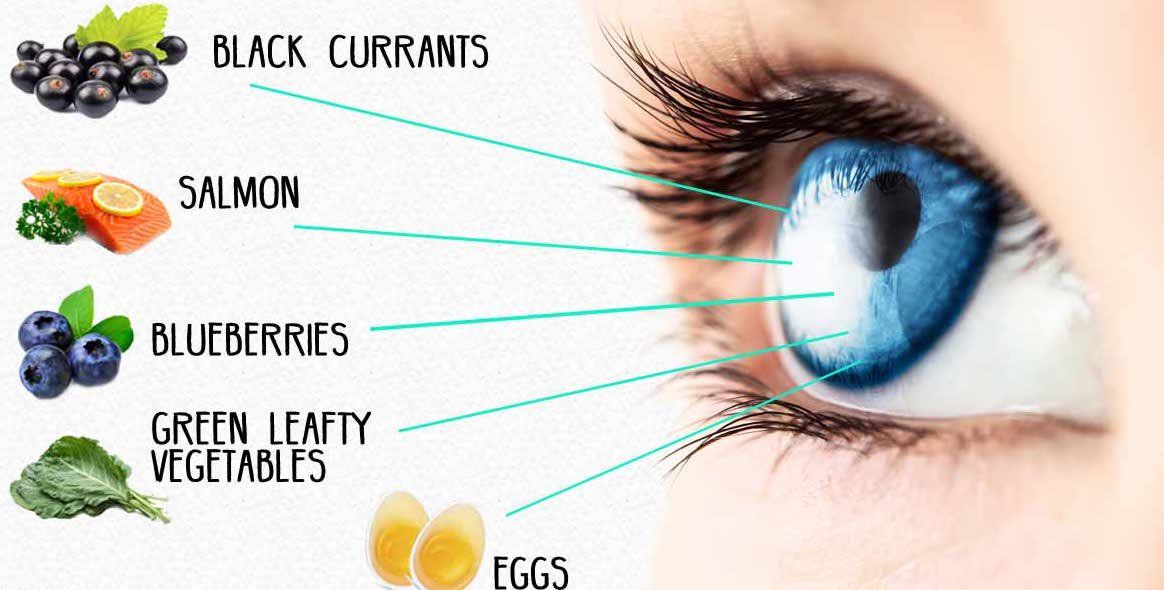
Keeping your eyes healthy requires a diet rich in nutritious foods. Sometimes even with a good diet you might get only the nutrients your eyes need. Supplements that promote eye health are useful in this situation. They provide extra nutrients that help your eyes stay healthy. A diet high in produce whole grains and lean meats will help maintain healthy eyes. These foods provide the nutrients your eyes require. But if you're missing some nutrients from your meals eye health supplements can fill in those gaps and make sure your eyes get what they need.
Essential Nutrients Beneficial for Eye Health
Some nutrients are excellent for your eyes. Here are a few:
- Omega-3 fatty acids (DHA and EPA): These fats are essential for the health of the back part of your eye and can help keep your vision clear as you age.
- Vitamins A C and E: These aid in maintaining healthy eyes and shielding them from harm.
- Zinc: This mineral helps your eyes see at night and keeps them strong.
- Lutein and zeaxanthin: To put it another way these act as internal sunglasses. They help protect your eyes from too much light.
Advice for Choosing the Right Supplements
Choosing the right eye health supplements can help keep your eyes healthy. How to choose the best ones? Consider these suggestions:
- Talk to a Doctor: To obtain the correct guidance it's recommended that you consult an eye doctor or your healthcare provider.
- Look for Important Nutrients: Make sure the supplement has nutrients that are good for the eyes such as Omega-3 Vitamins A C and E Zinc Lutein and Zeaxanthin.
- Choose Quality: Select supplements that are known for being high-quality and free of harmful substances.
- What Kind Do You Like?: Consider whether you like taking pills capsules or a liquid supplement. Choose the kind that is easy for you to take.
- Check Reviews: Take a look at the supplement's reviews and see whether it has the stamp of approval from a reputable authority.
Taking the right eye health supplements can help your eyes stay healthy and clear your vision. This is an easy approach to make sure your eyes get what they need for proper care.
#4: Blue Light Filtering Glasses
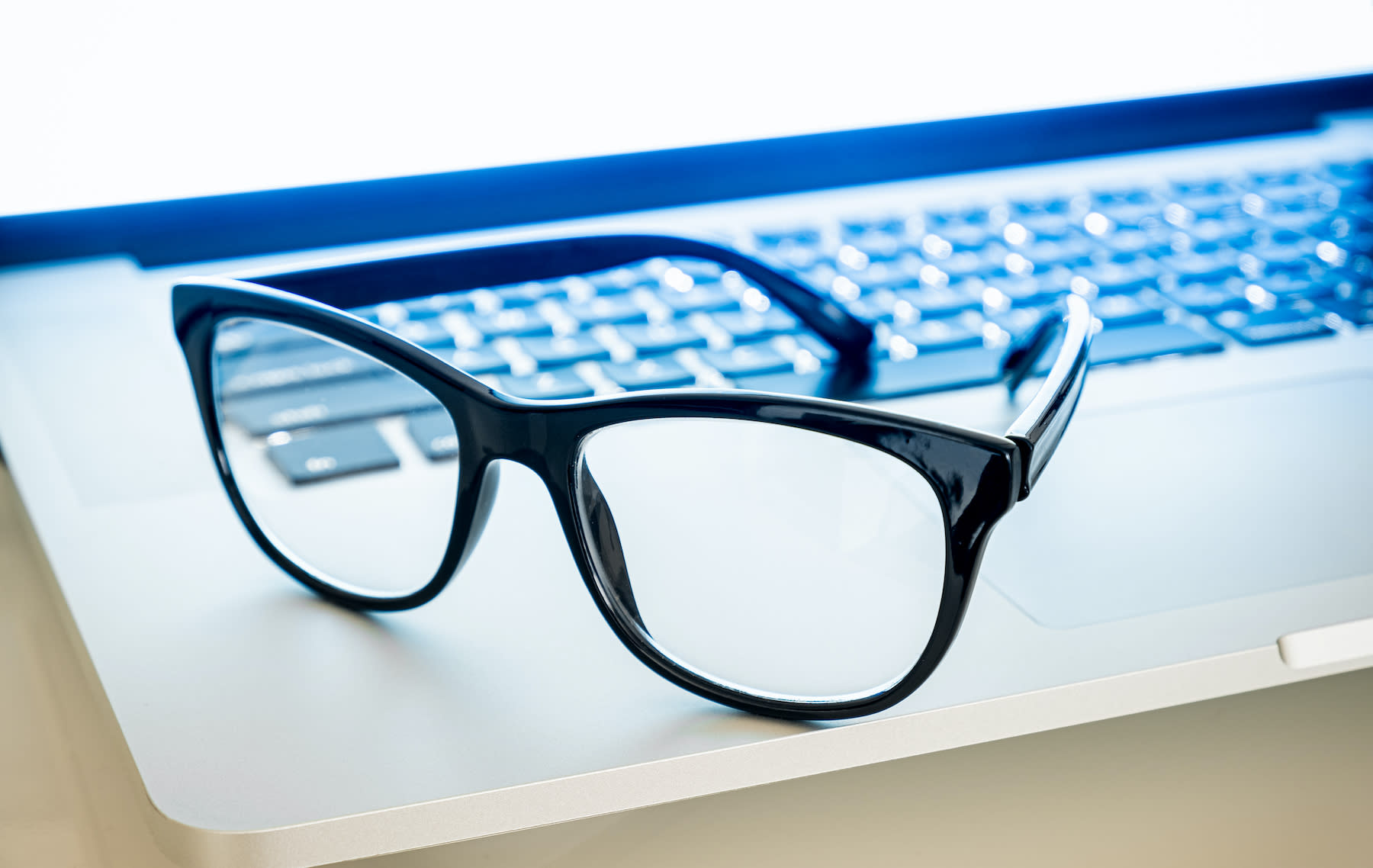
Devices such as computers phones and tablets emit a light known as blue light. This light can make your eyes tired causing headaches or trouble sleeping. Do you know how blue light might affect your eyes how special blue light-filtering glasses can help and other ways to protect your eyes from blue light?
How Blue Light Filtering Glasses Can Help
Blue light-filtering glasses are made to block some of this blue light. Wearing these glasses can:
- Make your eyes feel less tired.
- Help you avoid headaches.
- If you use your phone or computer before bed you can sleep easier.
- Keep your eyes healthy as you become older.
- If you use screens frequently during the day or at night these glasses are helpful.
Additional Ways to Reduce Blue Light Exposure
Besides wearing blue light-filtering glasses here are some simple things you can do to take care of your eyes:
- Change device settings: You can adjust the light on your screens to be less blue. Look for settings like "brightness" and "color temperature" and turn them down.
- Use screen filters: To protect your screen from harmful blue light you can use these thin covers.
- Follow the 20-20-20 rule: You should glance away from your screen for twenty seconds every twenty minutes at the very least. Put this down and look at something else for a change.
- Cut down screen time: Try to spend less time on your devices especially before bed to help your eyes rest and make it easier to fall asleep.
Wearing blue light-filtering glasses and taking these extra steps can help keep your eyes feeling good even when you use screens frequently.
#5: Eye Masks
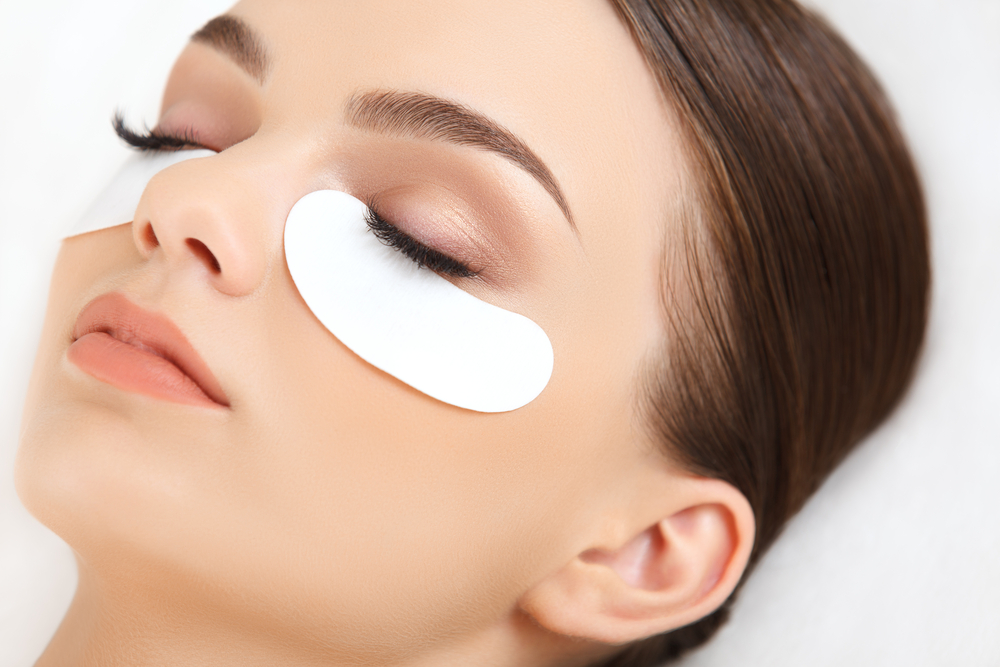 Eye masks are a great way to help you relax sleep better and make your eyes feel less puffy. They are easy to use and can be very helpful whether you are at home traveling or even during a busy day at work. Let’s examine why eye masks are good for you the different kinds you can find and how to use them to feel better.
Eye masks are a great way to help you relax sleep better and make your eyes feel less puffy. They are easy to use and can be very helpful whether you are at home traveling or even during a busy day at work. Let’s examine why eye masks are good for you the different kinds you can find and how to use them to feel better.
Benefits of Using Eye Masks
Eye masks are beneficial for a few reasons:
- Promoting relaxation: Eye masks block out light making it easier for you to calm down and relax which helps reduce stress.
- Reducing eye puffiness: They can cool down and soothe your eyes making any puffiness or dark circles less noticeable.
- Improving sleep quality: Wearing an eye mask can help keep your room dark while you sleep which can help you sleep better.
- Reducing headaches: Sometimes eye masks can help ease headaches by relaxing the area around your eyes.
Types of Eye Masks
There are various types of eye masks that you can choose based on your needs:
- Weighted eye masks: These masks have a little extra weight which can feel like a gentle hug for your eyes and help you relax.
- Heated eye masks: These masks get warm which can help reduce swelling and make your eyes look and feel better.
- Cooling eye masks: These masks stay cool and help quickly calm down puffy eyes.
- Compression eye masks: These masks are great for relieving stress and calming the mind because of the gentle pressure they provide to the eyes.
Incorporating Eye Masks into Your Routine
Here’s how you can start using eye masks to help your eyes:
- Before bedtime: As a gentle reminder to wind down and get ready for sleep try donning an eye mask in the hours leading up to bedtime.
- During travel: Eye masks can be helpful on long trips to keep your eyes from getting tired.
- At work: Using an eye mask for even a few minutes during a break can help refresh your eyes and make you feel more awake.
- Whenever you need: Whenever your eyes feel tired or you need a moment to relax an eye mask can be a quick way to help.
Eye masks can be an easy and effective way to care for your eyes helping you feel more relaxed and rested. Whether you use them every day or just sometimes they can make a big difference in how you think.
#6: Eye-Friendly Lighting
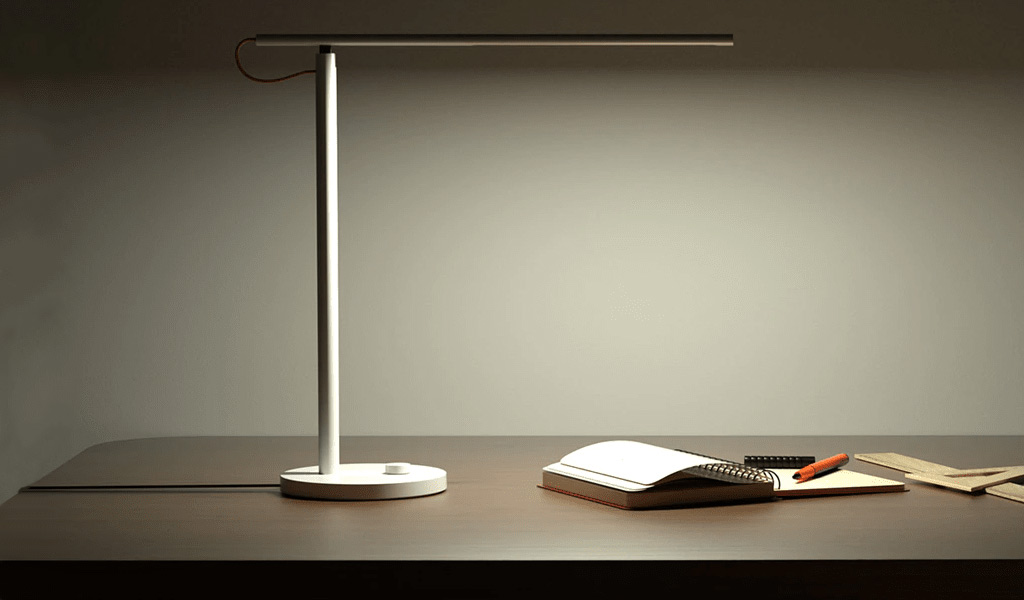
Good lighting is vital to keeping your eyes comfortable and avoiding strain especially if you spend a lot of time reading working on a computer or doing other close-up tasks. Do you know how proper lighting can help minimize eye strain and make your environment more comfortable? Let’s check some eye-friendly lighting solutions and offer tips on adjusting your lighting to support your eye health.
How Proper Lighting Can Reduce Eye Strain and Discomfort
Proper illumination aids in the preservation of eye health by:
- Providing adequate illumination: The right amount of light helps you see clearly without straining reducing the risk of tiring your eyes.
- Minimizing glare: Excessive glare from overly bright lights or reflections can make it hard to see and cause discomfort. Proper lighting setups can cut down on glare.
- Enhancing contrast: Proper lighting improves the contrast of what you're looking at which makes it easier to see and reduces the effort your eyes need to make.
Eye-Friendly Lighting Solutions
Here are some lighting solutions that are gentle on your eyes:
- LED bulbs: These bulbs are bright and energy-efficient. They give a gentle light that won't strain your eyes or cause them to ache.
- Task lighting: Desk lamps and under-cabinet lights are examples of task lighting that direct light to specific areas eliminating eye strain.
- Natural light: The sun is one of the best light sources for eye health. Whenever possible set up your workspace near a window to take advantage of natural light which can also help improve your mood.
Tips for Adjusting Ambient Lighting
To make sure your lighting is comfortable for your eyes try these tips:
- Position light sources correctly: Place your light sources behind or to the side of your workspace to avoid glare and shadows where you're looking or working.
- Use adjustable lighting: Opt for lamps and fixtures that allow you to adjust the brightness and even the color temperature to suit your needs at different times of the day.
- Avoid harsh lighting: If you want to keep things nice and dark you should stay away from bright overhead lights. Instead use soft diffused lighting that distributes light evenly.
- Take breaks: Remember to rest your eyes. Adjust the lighting occasionally or take short breaks from screen time to help reduce eye strain.
Using these eye-friendly lighting strategies and minor adjustments to your environment you can create a space that feels better for your eyes reduces fatigue and supports your overall eye health.
#7: Eye-Safe Makeup
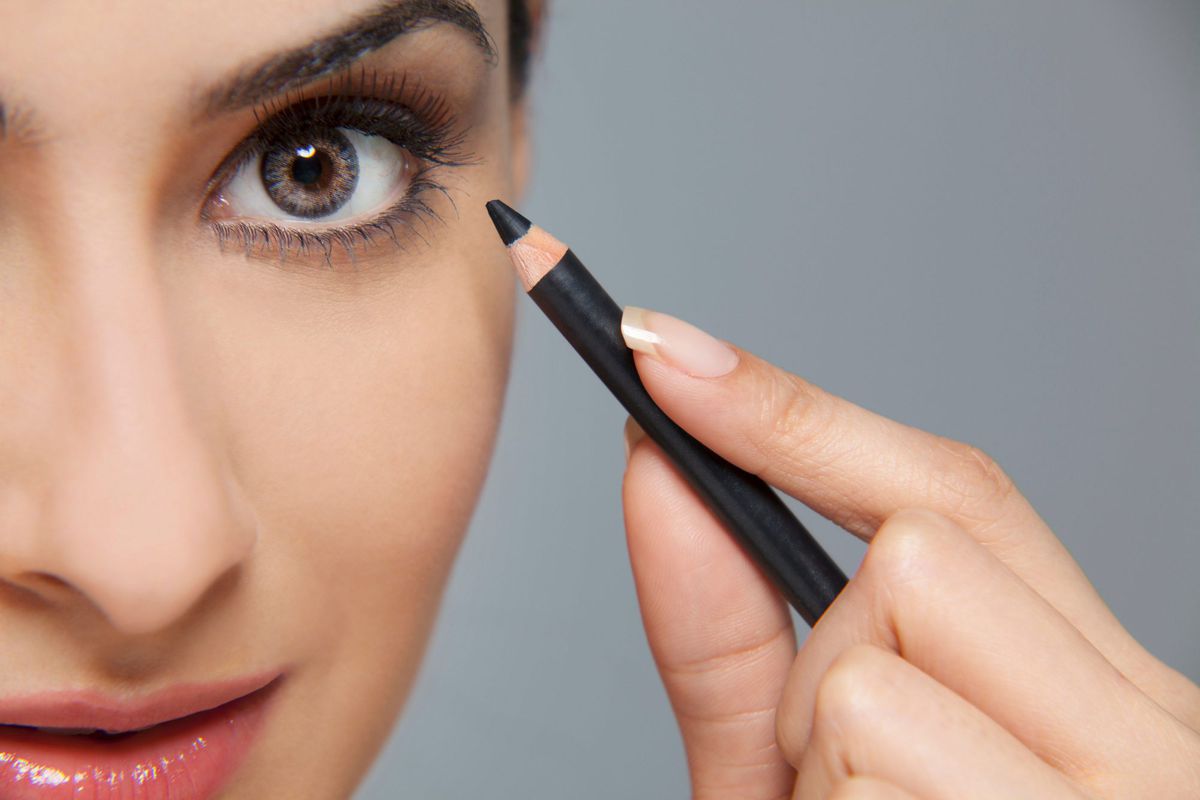
Makeup that's safe for your eyes helps to keep them free from irritation and allergies. Some makeup contains stuff that could hurt your eyes if it gets into them. Using makeup made to be safe for your eyes means you're less likely to have these problems.
Key Ingredients to Look For
When you're choosing makeup especially for your eyes look for these things on the label:
- Hypoallergenic: This means the makeup is less likely to cause allergic reactions so it’s better for sensitive eyes.
- Ophthalmologist-tested: This type of makeup has been checked by eye doctors to ensure its safety for your eyes.
- Natural or organic ingredients: Makeup with natural or organic ingredients is usually gentler because it doesn’t contain harsh chemicals.
Tips for Proper Makeup Application and Removal
Here are some easy ways to use makeup without hurting your eyes:
- Wash your hands: Always clean your hands before you start putting on makeup.
- Use clean brushes and applicators: Clean your makeup brushes and tools often to eliminate germs that could cause infections.
- Don’t share your makeup: Sharing makeup can spread germs from one person to another. It’s best to use only your makeup.
- Take off your makeup before bedtime: Makeup might irritate your eyes as you sleep so it's best to remove it before bed.
- Use a gentle makeup remover: If you want to avoid irritating your eyes when removing your makeup choose a gentle cleanser.
By picking the right makeup and following these tips you can help keep your eyes healthy and avoid problems from using the wrong makeup. It’s all about caring for your eyes even when wearing makeup!
#8: Regular Eye Exams
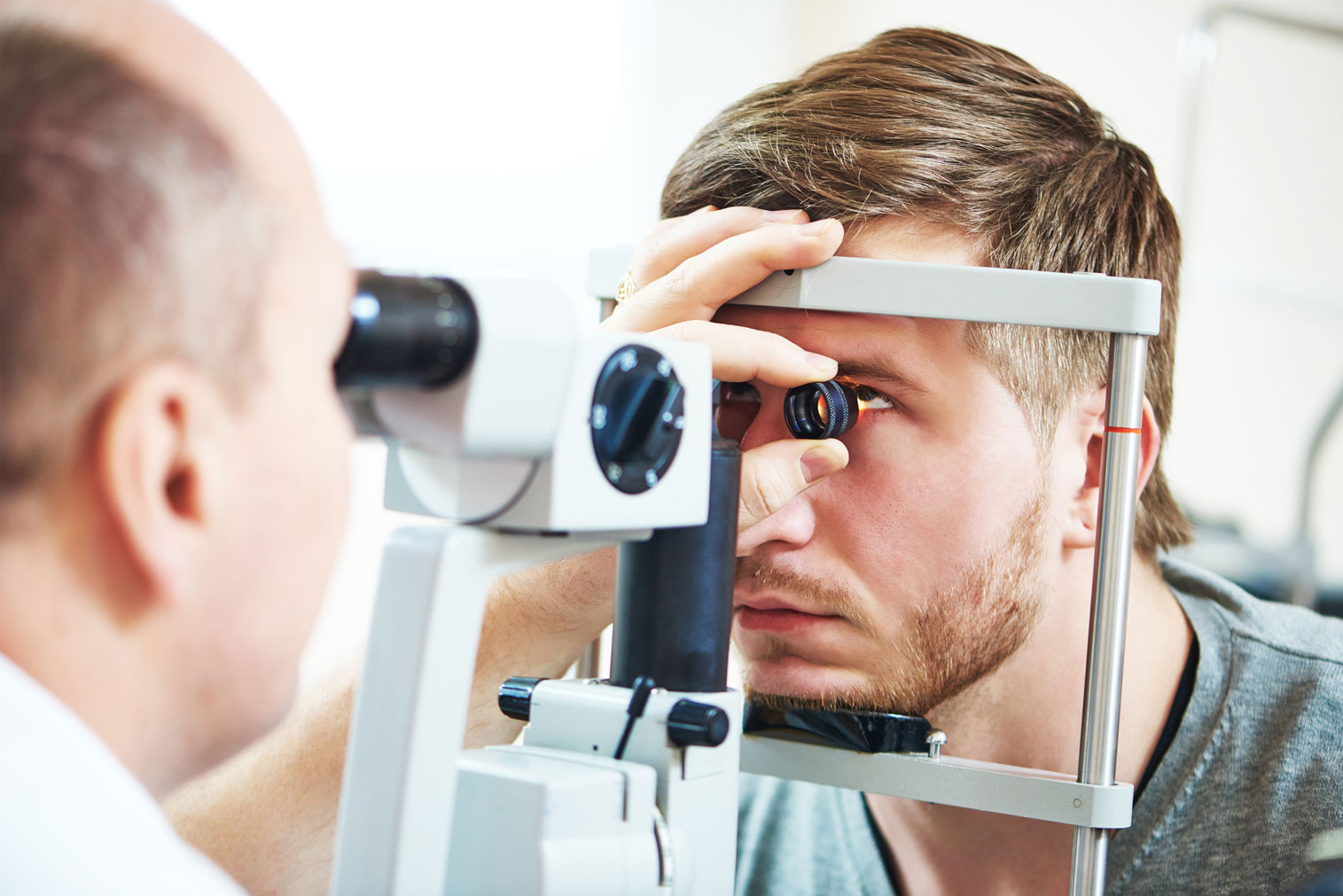
A person's eye health can be greatly improved by maintaining a schedule of frequent eye exams. By detecting eye issues at an early stage these tests facilitate more effective and less invasive treatment. Let’s check out why regular eye exams are so crucial how often you should get them based on your age and health and what to expect when you go for an exam.
The Importance of Regular Eye Exams
Regular eye exams are essential for maintaining good eye health and clear vision. Their assistance in determining
- Refractive errors: Early detection allows for the correction of common problems like nearsightedness farsightedness and astigmatism with glasses or contact lenses.
- Eye diseases: Severe vision issues in the future can be avoided by early identification of disorders such as glaucoma cataracts and macular degeneration.
- Other health issues: Eye exams can detect more than just vision problems; they can also detect diabetes and hypertension two major health disorders that might affect your eyes.
Recommended Exam Frequency
Your age and the presence or absence of any risk factors should determine the frequency of your eye exams:
- Children: At six months three years and again before starting school a kid should have their eyes checked for the first time.
- Adults: Regular eye exams are recommended for everyone over the age of 40. After 40 it’s best to have an exam every 1-2 years.
- People with risk factors: If you have a family history of eye diseases diabetes or other health conditions you might need eye exams more frequently.
What to Expect During an Eye Exam and How to Prepare
In order to ensure that your eyes are healthy and that you can see well an eye exam will involve the following procedures:
- Visual acuity test: This is a test of your far vision abilities.
- Refraction test: This determines whether you require glasses or contact lenses as well as what prescription they should be.
- Eye alignment and movement test: This checks that your eyes work together correctly.
- Eye health evaluation: This looks at the health of different parts of your eyes like the cornea iris and retina.
Get ready for your eye exam by doing the following:
- You should bring your existing eyewear whether glasses or contact lenses.
- Keep track of all the prescriptions you're taking right now.
- Your vital medical records should be brought with you.
- Talk to your eye doctor about any eye problems or symptoms you're experiencing.
To maintain healthy eyes and the finest vision possible it is vital to get regular eye exams. If you want to maintain your eyes healthy for a long time and discover problems early you should schedule your tests according to the recommended timetable.
#9: Eye Hygiene Products
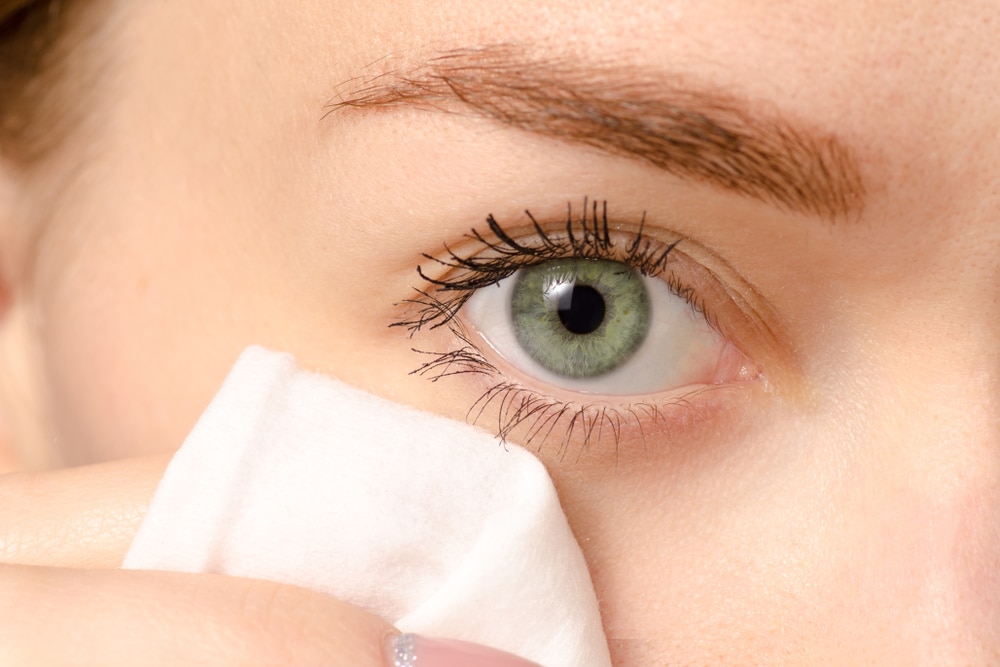
Keeping your eyes clean is critical for preventing eye infections and maintaining eye health. Special products can help. In this section we'll discuss why it's important to keep your eyes clean what products can help and how to use these products properly.
The Importance of Proper Eye Hygiene
Good eye hygiene helps prevent problems like:
- Eye infections: If your eyes are dirty you could get infections that make your eyes red swollen and gooey.
- Dry eye: When your eyes aren't clean they might feel dry and uncomfortable.
- Eye irritation: Dirt on your eyes can make them itchy burn or turn red.
Essential Products for Eye Hygiene
Here are some products that can help you keep your eyes clean:
- Eyelid wipes: These are soft wipes that you can use to gently clean your eyelids and eyelashes.
- Eye cleansers: These are special liquids that help wash away dirt and makeup from around your eyes.
- Warm compresses: Applying heat with a towel helps alleviate dry or irritated eyes.
How to Use Eye Hygiene Products Effectively
Here are a few pointers to help you use these goods correctly:
- Read the instructions: Each product has instructions on how to use it safely. Make sure to read and follow these.
- Clean your hands: Before touching your eyes or applying any eye care products make sure to wash your hands thoroughly.
- Be gentle: When cleaning your eyes use soft touches so you don’t hurt your eyes.
- Use warm compresses correctly: Put a warm damp cloth on your eyes for 10–15 minutes. This can help your eyes feel better.
- Replace old products: Don’t use old wipes or cleansers. Get new ones regularly so they are clean and safe.
Maintaining healthy irritation-free eyes is as easy as using these eye hygiene products and following these guidelines. This little thing can make a huge difference in how well your eyes are taken care of.
#10: Eye-Friendly Diet
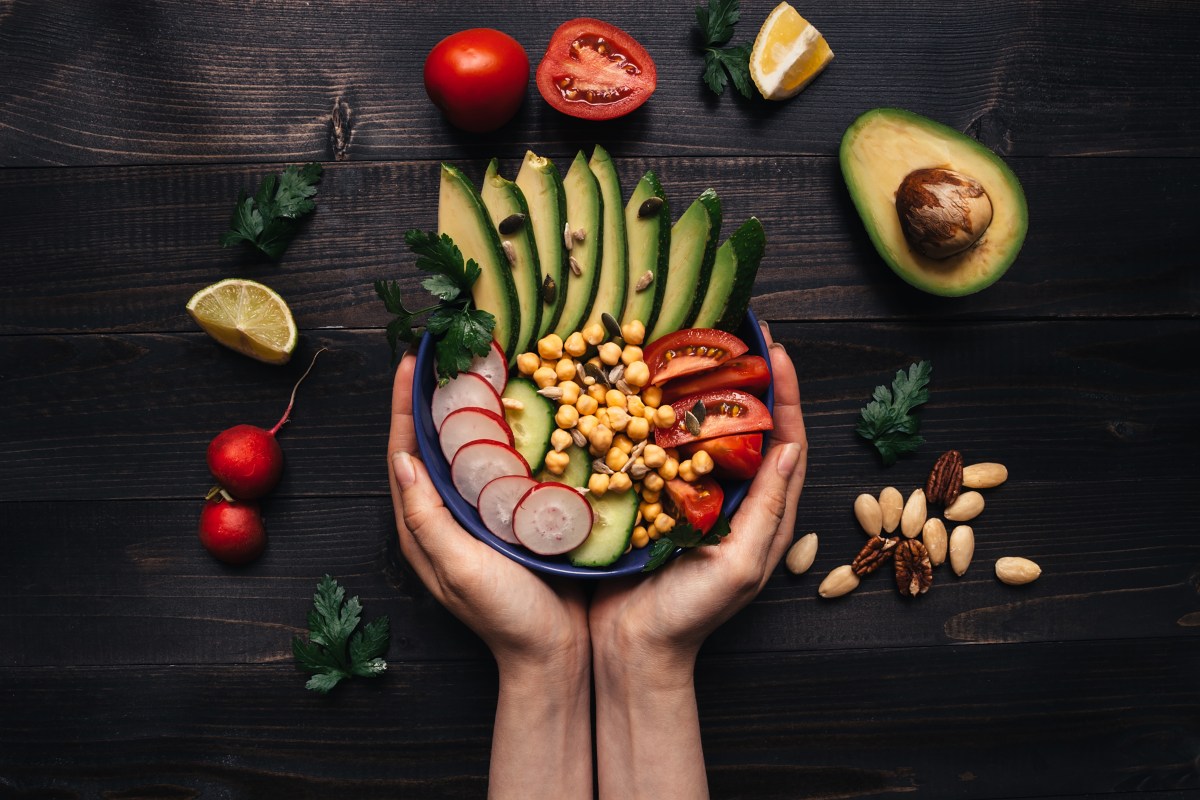
Eating the right foods is really important for keeping your eyes healthy and helping you see well as you age. Let’s check out why eating well is good for your eyes list some great foods for eye health and give you some easy meal ideas that include these foods.
The Role of Nutrition in Promoting Eye Health
Eating well benefits your eyes in a few important ways:
- Helps prevent age-related eye problems: Foods with lots of vitamins help keep your eyes from getting diseases that make it hard to see as you age.
- Keeps away cataracts: Cataracts make your vision blurry. Eating foods with certain nutrients can help stop them from forming.
- Keep your eyes healthy: Vitamins and minerals are like eye superheroes helping you avoid eye diseases.
Essential Foods and Nutrients That Support Eye Health
Some superfoods for your eyes include:
- Green leafy vegetables like spinach and kale: The antioxidants lutein and zeaxanthin found in abundance in them will keep your eyes safe.
- Oranges and strawberries: These fruits are full of vitamin C which is excellent for eye health.
- Nuts and seeds like almonds and sunflower seeds: These have vitamin E which fights off eye problems as you get older.
- Meat and seafood: These are good sources of zinc which helps your eyes see better at night and keeps them strong.
Meal Ideas and Recipes That Incorporate Eye-Friendly Ingredients
Here are a few easy meals you can make that are good for your eyes:
- Salmon and Spinach Salad: Mix some cooked salmon with fresh spinach leaves add some cherry tomatoes and a few slices of avocado for a yummy and healthy salad.
- Lentil Soup: Cook lentils with chopped carrots and onions. Add your favorite spices for a tasty eye-healthy soup.
- Kale and Quinoa Salad: For a crunchy healthy salad mix chopped kale with cooked quinoa a handful of almonds and some dried cranberries. Drizzle with a lemon-tahini sauce.
- Sweet Potato and Black Bean Tacos: Tostadas should have black beans and roasted sweet potatoes inside them. Top with sliced avocado and a little salsa for a delicious dinner.
If you want to maintain healthy eyes and shield them from age-related issues including these eye-friendly items in your diet. Additionally these meals are tasty!
Conclusion
In conclusion we’ve looked at 10 great ways to care for your eyes. We talked about wearing protective eyewear to keep your eyes safe from bright lights using eye drops to keep them from getting dry and taking eye health supplements to help them stay healthy. We also talked about using safe makeup relaxing with eye masks and having good lighting around you to make it easier to see without straining your eyes. Plus we talked about keeping your eyes clean with unique products going for regular eye exams and eating foods that are good for your eyes.
Maintaining proper eye care is crucial. Simple things like wearing the right glasses eating well and seeing your eye doctor can help keep your eyes healthy and prevent later problems.
At trusted10.io we’re here to help you take these steps. Try using these tips every day to help your eyes stay healthy. Your eyes let you see all the beautiful things around you so looking after them is a great way to ensure you enjoy life to the fullest.
